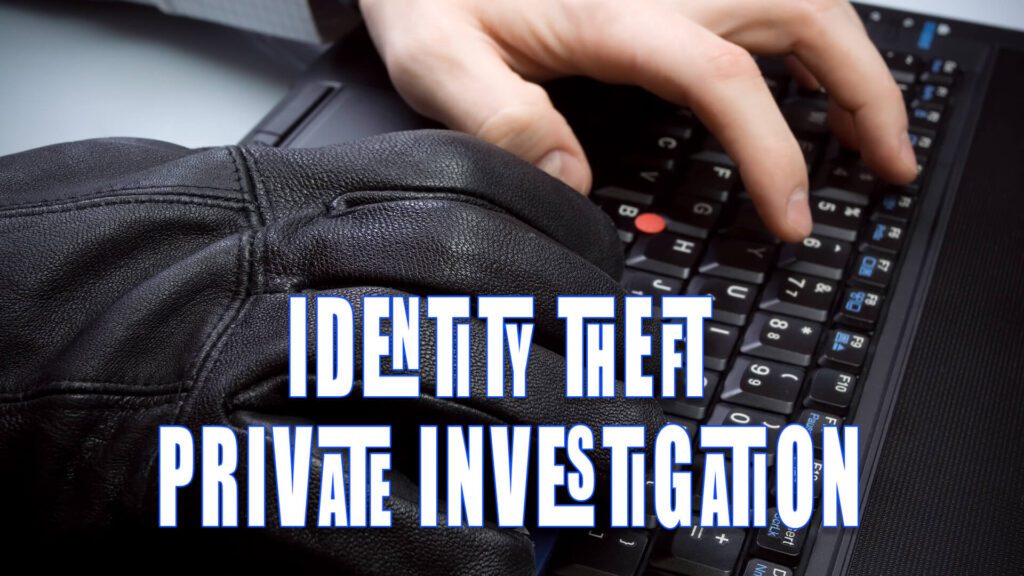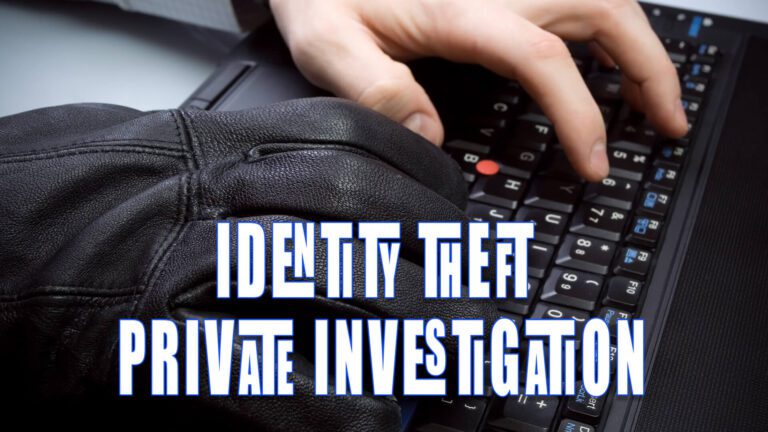What exactly is identity theft?
Identity theft (also known as ID theft) occurs when someone uses the personal information of another person to commit fraud, steal credit, or commit other crimes.

An identity thief will look for the following details:
- Name in full
- Contact information
- Birthplace and date
- Physical location
- Contact information via email
- Credit card details
- Account statements
- SSN (Social Security Number)
- Passwords
- Computers
- Hobbies and club memberships
- PIN codes
- Numbers on passports
- Number of a driver’s license
Statistics on Identity Theft
Every two seconds, a person’s identity in the United States is stolen. Identity theft affected 500,000 more people in 2013, rising from 12.6 million in 2012 to 13.1 million in 2013, with losses also rising.
Types of Identity Theft
Criminal identity theft:
Criminal identity theft occurs when a criminal accused of a crime assumes a different identity to avoid prosecution.
Typically, the victim is unaware that their identity has been stolen until they receive a court summons or their employer discovers the infraction on a background check.
Criminal identity theft is difficult to prove even once it has been found.
Theft of financial identities:
Financial identity theft is the most common sort of identity theft.It involves someone gaining economic benefits by using someone else’s information.
This includes many scams, such as stealing credit card information or posing as someone’s bank to obtain information.
Identity cloning:
In an identity cloning situation, a person takes on another’s identity to hide their own. Illegal immigrants, debtors hiding from creditors, and people who simply want to go off the grid fall into this category.
Because there are no clear signals that your identity is being used in this way, identity theft might go unreported for an extended period.
Identity theft in the medical field:
When someone claims to be someone else while seeking medical care, this is known as medical identity theft. This entails obtaining insurance information or a card from someone else.
Whatever therapy the identity thief seeks is recorded in the victim’s medical records, sometimes resulting in misdiagnosis or interrupting employment opportunities.
Child identity theft:
When someone steals a minor’s identity for personal gain, this is known as identity theft. The social security number of a minor is valuable because it has no information associated with it.
This means that an identity thief can open credit accounts, obtain a driver’s license, and even purchase a home using the identity of a minor.
Mobile Identity Theft:
Regardless of the fact that smartphones are becoming increasingly intelligent, many hackers are still making basic phone calls to gather information about you in schemes known as “vishing.” When they call (or sometimes text), these bad men have technology that allows them to show any name and number on your phone, and they frequently pose as your bank.
They can then phone your bank and wreak havoc on your accounts after gathering as much information as they require from you. It is recommended not to offer personal information to anyone over the phone, by email, or via text message.
How to Protect Yourself Against Identity Theft
Keeping your information private has become more challenging as the internet, and social media have grown in popularity. Still, there are steps you can do to protect yourself from identity theft:
- Always have your Social Security card in your wallet.
- Keep all of your physical records in a secure location.
- Social networking sites like Facebook and Twitter do not post your birthday, birth date, or other personal information.
- Use passwords frequently and in a variety of ways.
- Keep your financial information up to date.
- Use only reliable internet connections instead of public Wi-Fi.
- Whether you’re in line at the store or on the phone, keep your PIN digits safe.
- Shred essential documents before discarding them.
- Unsolicited emails that promise benefits but want personal information should not be opened.
Beware of Phishing and Smishing
Phishing is an email scam in which criminals impersonate banks, organizations, or other reputable sources to lure victims into revealing personal information.
Smashing is similar to phishing, but instead of sending an email, it uses a phone call. Larger firms, such as banks, will rarely request information through these channels. If you’re still not convinced, call the phone number mentioned on the website.
Protect Your Computer
Install antivirus and firewall software, and ensure all of your programs are updated with security patches and other routine updates.
Also, make sure your computer is password protected and that it is not left unattended in public. Hackers can examine the contents of your computer and steal information by exploiting program weaknesses.
Companies should be double-checked
Many criminals obtain information not from their victims but from the business owners with which their victims do business. Inquire about privacy policies and how your data is stored and used.
Quality companies will quickly share how they keep your data secure because they devote time and effort to doing so.
Investigate Odd Snail-Mail Patterns
You may be a victim of identity theft if your mail stops coming or you start receiving bills or statements from accounts you don’t have.
Your mail may be redirected to a post office box, where it is opened and sifted for information by thieves. Your mail, on the other hand, is protected by federal law. Therefore any indication of tampering should be reported.
Protect your personal data
Ensure no one can see your card numbers or PIN when using ATMs, debit machines, or identification cards.
Always keep track of your identity and credit cards, and stow them away after each usage.
Maintain a Paper Trail
Keep track of your account and financial receipts, bills, and other physical papers. These documents may be used as evidence in your case if you become a victim.
How to Report Identity Theft?
Take immediate action if you suspect identity theft. To begin, file a report with the Federal Trade Commission (FTC) and obtain an identity theft affidavit. You will need to file with local police and get a police report.
These documents constitute your identity theft report and will be required as you interact with creditors, banks, and any other companies where you experienced identity theft. Other organizations have been established to deal with specific types of identity theft, such as:
Long-term care identity theft: Report the theft to your state’s long-term care ombudsman if it happened while you were in a nursing home or long-term care facility.
Medical identity theft: Contact the fraud department of your health insurance company or the Medicare fraud office.
Tax identity theft: You would report tax evasion to the Internal Revenue Service and your state’s Department of Taxation or Revenue.
The following are some more resources:
- You can place fraud alerts on your accounts or freeze them with credit reporting agencies.
- So that no one else can apply for credit or use your social security number in your name.
- You can also obtain copies of your previous credit reports to ensure that no identity theft has occurred without your knowledge.
- State Consumer Protection Offices or Attorneys General may be able to help you with contacting creditors, disputing errors, and other issues.
This may appear to be a lot. Even when the proper channels are used, identity theft can be challenging to prove. A private investigator will have the knowledge and resources to guide you through the complex process.


